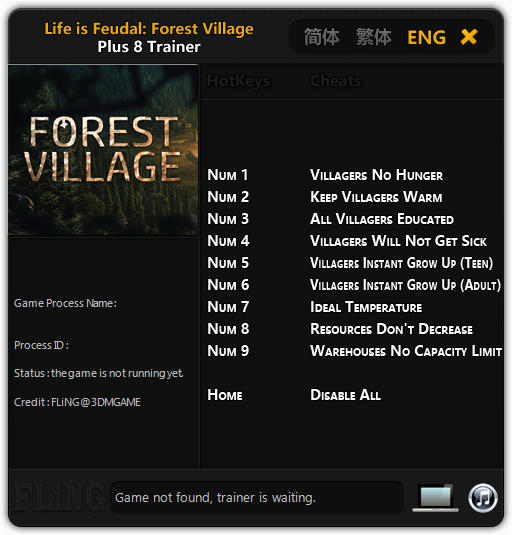


Game buildings takes an exorbitant amount of time. With the time and effort that it takes to create and expand in this game, I would have liked to see more threats in the late game. Similarly to games of the genre, this is a slow game, which is usually a great aspect, however you can find yourself 8-10 hours into a map, zoom out to discover you’ve barely expanded your tiny village. I found this incredibly infuriating while trying to build larger buildings. For instance, a villager pathing on hills can cause the villagers to wander back and forth until they starve and die. The game can still feel ‘alpha-like’ and ruin the immersion.

There are some issues that surround Life is Feudal: Forest Village, however. However, be careful when expanding your village, it can be far to easy to underestimate food supply. Once you get a good sustainable food supply, you’re rockin’. I found that the sensitivity was a bit mismatched and the camera had an annoying delay. The true difficulty curve I found came from food management during winter and planning your spring/summer preparing. The controls as a villager are unruly, so I’d recommend having a look in the settings. I think this is brilliant, there’s a couple of hot-keyed abilities that you can use as a villager and, usually, you can do a lot of the tasks faster than a regular villager would. If you like, you can play in first-person as any villager in your town, collecting resources, building buildings, and even fishing on the coast line. Where Life is Feudal: Forest Village really comes into its own is the unique style of city sim mechanics.


 0 kommentar(er)
0 kommentar(er)
